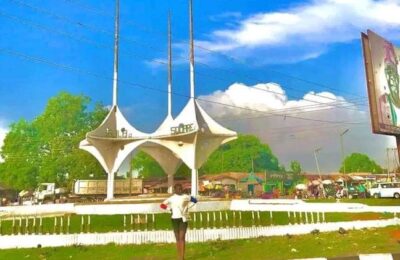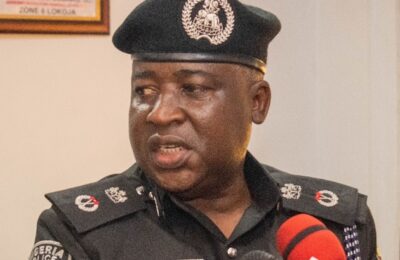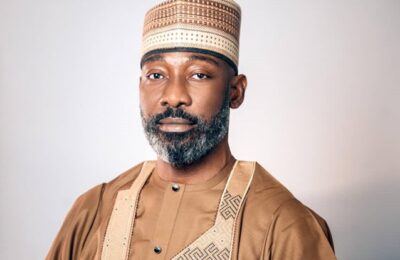This unpleasant and strange development has resulted in loss of lives, property, as well as grounding of business activities, culminating in disruption of a history of almost 50 years of peaceful co-existence.
One of the major challenges confronting Nigeria as a nation at the moment is that of insecurity. There is also the issue of mutual mistrust that has in many instances, resulted in breach of peace. So, round the clock, efforts are on to achieve peace. Peace remains the essential ingredient for any sustainable progress. This explains the vital role peace plays in the growth and development of human society.
Paradoxically, this much talked about peace is one thing that has become almost difficult to achieve in our contemporary society. Achieving peace in our today world is indeed a very tall order but even at that, we always strive at it. As you are solving one, another is rearing its head. It is more like a chain of event with varying degree of severity.
In recent time, Nigeria like several developing countries, finds itself contending with multifarious civil unrests. From the East to the North, South to the Western parts of the country, it is all about the story of one crisis or the other.
In some parts, it is ethno-religious crises while in some others, it is about resource control. For some others too, especially as it relates to Kogi State, it is the crisis between Fulani herdsmen versus farmers in their host communities.
This crisis as it has come to present itself is no longer peculiar to a particular region, ethnic group or state. Kogi State happens to be having its own fair share of the unfortunate trend.
Renowned for its peaceful and hospitable nature, the Confluence State as the state is also called, from time immemorial has played host to countless ethnic groups from within and outside the country. Sharing boundaries with nine states, and serving as a major gateway to no fewer than 20 other states of the federation, the state has the record of accommodating and providing thoroughfare for commuters and visitors alike.
This cherished position of the state has in recent time come under serious security threat. It could be recalled that for over a year now,Bagana community in Omala Local Government Area has become a theater of war. It is a fierce war between the Agatu/Igala people and the Fulani herdsmen.
Arising from this ugly development, many have been rendered homeless, property worth millions of naira destroyed just as manylives have been lost. There are also records of physical and emotional scars on the people who have co-habited for over a century.
The story is not quite different from what obtains in Abugi community in the Western flank of the state. The once peaceful, agrarian and evolving commercial village has in recent time, come under heavy security challenge.
Here too, it is the Fulani versus indigenous of Kupa community, who have consistently engaged in a life-threatening faceoff.
This unpleasant and strange development has resulted in loss of lives, property, as well as grounding of business activities, culminating in disruption of a history of almost 50 years of peaceful co-existence.
As it now appears, the former glory and peaceful era for which these communities of Bagana and Abugi were known for have been truncated and replaced with mutual mistrust and the worse form of bad blood. People in the community can no longer afford to sleep with both eyes closed.
Worried by this unhealthy development, the state Governor, Captain Idris Wada initiated a peace meeting with stakeholders of both communities. In attendance were a delegation of traditional rulers and community heads, some residents of the area, Director Local Government Administration for Lokoja and Omala, State Security Adviser, State Commissioner of Police as well as representatives of other security agencies amongst others.
Speaker after speaker narrated their own accounts of how their communities were invaded by unknown gunmen, who left in their trails, scars of destruction and deaths.
The meeting equality witnessed blame game as stakeholders engaged each other in accusation and counter accusations. Notwithstanding, solutions to the nagging problem were equally proffered at the same forum.
Spokespersons for Kupa community and Chairman Board of Trustee Kupa Development Association, Ambassador Adamu Isa appealed for approval for the early release of relief materials to displaced persons.
He further advised on the need to relocate the alleged perpetrators of the recent crises in the affected area in the interest of peace, while calling on the state police command to equip the police post in Kupa community as well as approve the activities of vigilante groups.
On the other hand, spokespersons for the Fulani, noted with concern that at the moment, the issue at stake is not trade blames, but rather, it is time to work out modalities towards achieving a lasting peace capable of engendering peaceful co-existence. Violence, he said, is an ill-wind with very dire consequences.
While commending the governor for mediating in the conflicts and seeking to restore peace and order, Mallam Sale encouraged the government to do all within its powers to return all internally displaced person to the community.
Meanwhile, the paramount ruler of Omala, the Ojogba Ife, HRH Boniface Musa disclosed that a committee to look into the crises has been set up by his council,promising that the move was to complement the current effort of the state government.
The District head of Bagana, Chief Ali Haruna linked the crises to what he described as sheer lack of respect by the Hausa/Fulani group to constituted traditional authorities. He emphasized the need to give due regard to appropriate authorities as such according to him, is a panacea to peaceful co-existence.
The spokesperson for the Igala delegation, Mallam Ibrahim Yakubu also added his voice to the interactive forum.MallamYakubu traced the genesis of the problem to the influx of the embattled Fulani herdsmen from the Agatu-Fulani conflict in Benue State into Bagana.He then advocated for the disarmament of armed Fulani faction in the area.
Alhaji Ibrahim Musa, spokesperson of Bagana Hausa community, refuted the accusation that his men were harbouring and providing weapons to the warring Fulani, while expressing the readiness of his group to work for the achievement of peace in the community.
Mr. Solomon Obochi, spokesperson for Agatu community, accused the Fulani herdsmen of destroying crops and farm land and called on the government to explore all avenues to ensure a sustainable peace.
In his remark, Governor Idris Wada, charged members of Bagana community to sheathe their swords in the interest of the peace and progress of the community in particular and the state as a whole.
The governor who emphasized the right of every Nigerian to live and carry out legitimate business in any part of the country as constitutionally enshrined in the laws of the land, described the idea of discrimination against certain persons or groups under the guise of citizen-settler syndrome as inimical to the spirit of brotherliness.
Wada, who opined that dialogue remains the best option, noted that everybody is a victim of the on-going conflict and called on stakeholders and residents of Bagana to bury their differences, be their brother’s keeper as well as work for the peace and progress of the land.
Captain Wada used the forum to appeal to all aggrieved persons in both Kupa and Bagana communities to shun acts capable of threatening the peace and stability of the country before, during and after the forth coming general elections.
Contributing, the member representing Omala at the State House of Assembly, Hon Aliyu Akuh thanked the governor for his efforts at finding lasting peace and called on all stakeholders to that advantage of the opportunity to work for the peace and progress of the land.
On his part, the member representing Lokoja ll at the State House of Assembly, Dr Idris Shehu, called on government to include Kupa community in the areas to be monitored by the joint security task force patrol team as part of efforts to boost security and peoples’ confidence in the area.
Some of the measures adopted by the state government at the meeting include; the decision to set up a peace enhancement committee on the Kupa-Fulani clash in Abugi community of Lokoja Local government area of the state and Agatu-Igala-Fulani clash in Omala Local Government Area of the state.
The committee would be made up of five representatives from the various concerned groups, traditional rulers and the Director of Local Government Administration. According to the governor, the committees would meet monthly and later quarterly as part of efforts to enhance peace in the affected areas.
Contributing, the state Commissioner of Police, Adeyemi Ogunjemulusi advised the people of the area to keep to the agreement reached during the meeting in the interest of the peace and development of the state. He, however, warned those bent on promoting crisis in the state that the police would not hesitate to make them face the full weight of the law.
The peace meeting has open new vista of hope. It is not in doubt that if everyone goes home with what was discussed; bearing fruits in his or her heart, there would be peace not only in the affected communities but across the length and breadth of the state. All said and done, there is light at the end of the tunnel.
Source: The Graphic




